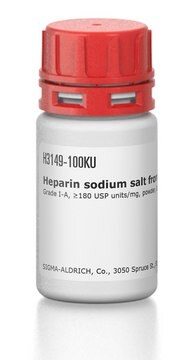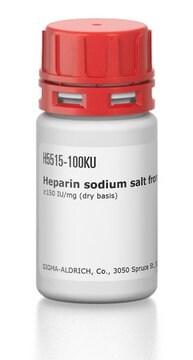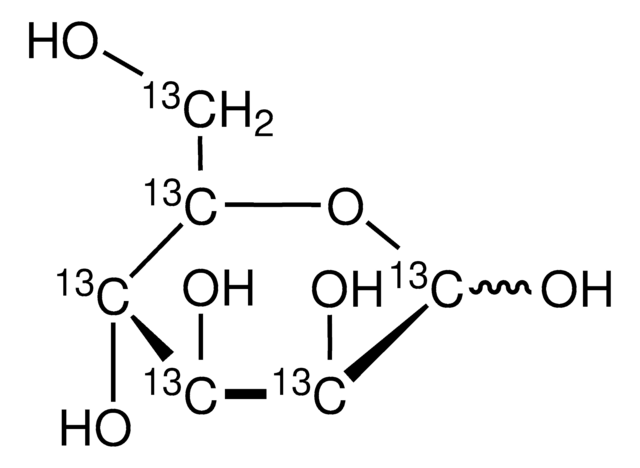M2069
D-(+)-Mannose
≥99% (GC), wood
Synonym(s):
D-Mannopyranose
About This Item
Recommended Products
biological source
wood
Quality Level
Assay
≥99% (GC)
form
powder
technique(s)
gas chromatography (GC): suitable
color
white to off-white
mp
133-140 °C (lit.)
solubility
water: 50 mg/mL, clear, colorless to faintly yellow
storage temp.
room temp
SMILES string
OC[C@H]1OC(O)[C@@H](O)[C@@H](O)[C@@H]1O
InChI
1S/C6H12O6/c7-1-2-3(8)4(9)5(10)6(11)12-2/h2-11H,1H2/t2-,3-,4+,5+,6?/m1/s1
InChI key
WQZGKKKJIJFFOK-QTVWNMPRSA-N
Looking for similar products? Visit Product Comparison Guide
General description
Application
Biochem/physiol Actions
Other Notes
Quality
Storage Class Code
11 - Combustible Solids
WGK
WGK 1
Flash Point(F)
Not applicable
Flash Point(C)
Not applicable
Personal Protective Equipment
Regulatory Listings
Regulatory Listings are mainly provided for chemical products. Only limited information can be provided here for non-chemical products. No entry means none of the components are listed. It is the user’s obligation to ensure the safe and legal use of the product.
JAN Code
M2069-BULK-9:
2540035:
M2069-25G:
M2069-100G-9:
M2069-5G:
M2069-5G-KC:
M2069-PM:
M2069-100G:
M2069-CH:
M2069-BULK:
M2069-VAR-9:
M2069-500G:
M2069-VAR:
Certificates of Analysis (COA)
Search for Certificates of Analysis (COA) by entering the products Lot/Batch Number. Lot and Batch Numbers can be found on a product’s label following the words ‘Lot’ or ‘Batch’.
Already Own This Product?
Find documentation for the products that you have recently purchased in the Document Library.
Customers Also Viewed
Our team of scientists has experience in all areas of research including Life Science, Material Science, Chemical Synthesis, Chromatography, Analytical and many others.
Contact Technical Service







